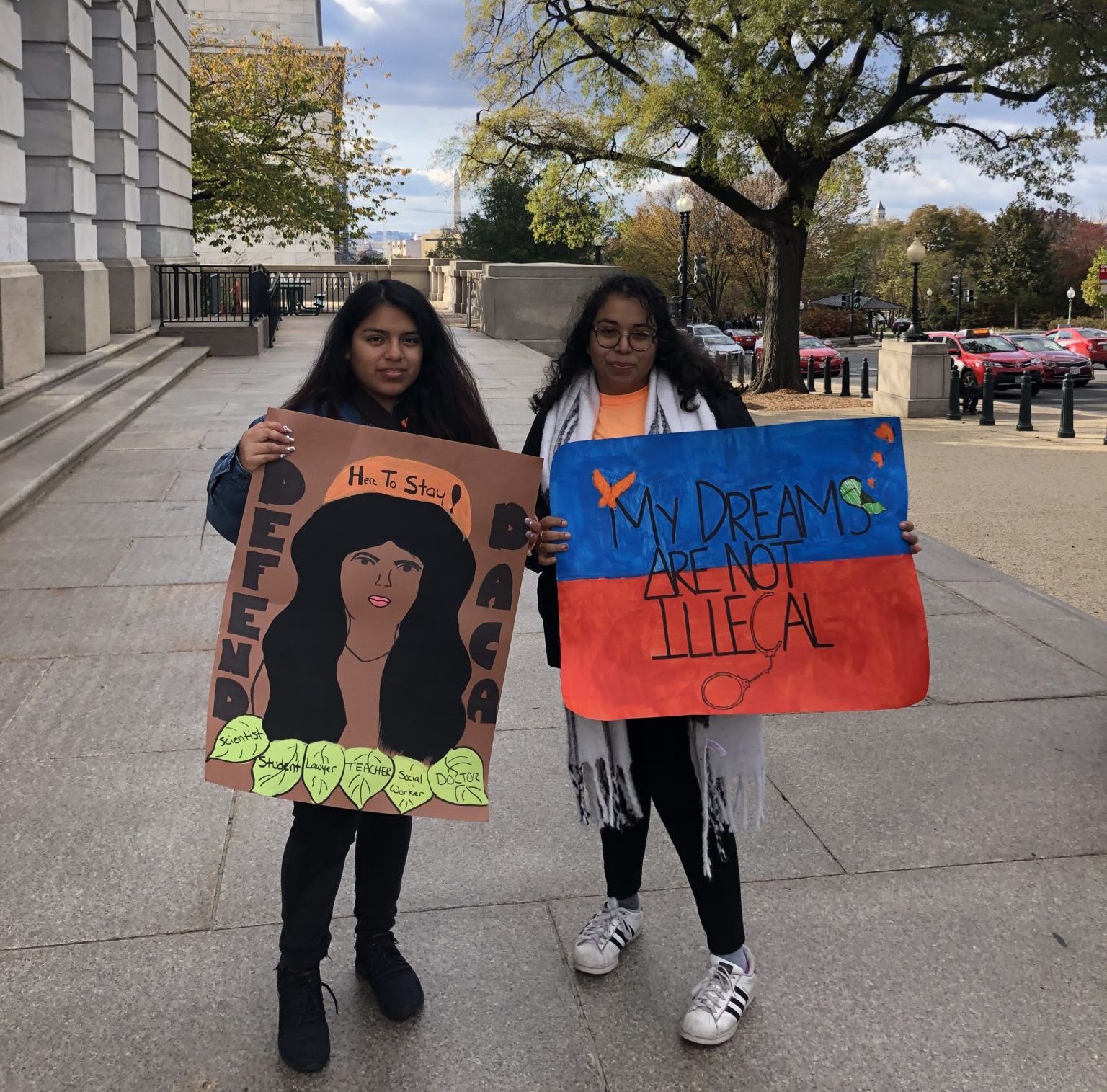
Olivia Tucker
Less than two weeks after Cristian Padilla Romero GRD ’24 started an online petition to have his mother released from an Immigration and Customs Enforcement detention center in Georgia, ICE has decided to deport the 48-year-old cancer survivor, he said.
According to Padilla Romero, Rep. Lucy McBath’s, D-GA, office informed organizers of #ReleaseTaniaNow on Thursday afternoon that ICE had requested Tania Romero’s travel documents from the Honduran consulate — a sign that the agency will attempt to deport her in the near future. Per ICE policy, removal orders cannot be carried out until “the receiving country of the person being deported [issues] travel documents.” The Honduran embassy has not and does not plan to issue the travel documents, said Padilla Romero, who has communicated with the embassy through the Honduran consulate in Atlanta. The News was not able to confirm Padillo Romero’s claims with ICE or the Honduran embassy.
Romero was detained in August after being pulled over for a traffic violation and has spent nearly three months in the Irwin County Detention Center in southern Georgia. While in detention, Romero — who is recovering from Stage IV oral cancer — has experienced a rapid deterioration in her health and has been diagnosed with a severe vitamin B12 deficiency, according to the online petition.
“ICE has been trying to expedite her deportation because of the attention she has,” Padilla Romero told the News. “She does not have the travel documents. If ICE does send her anyway, that breaks their own protocol.”
ICE spokesperson Lindsay Williams declined to comment on Romero’s case due to privacy restrictions. The Honduran embassy could not be reached for comment.
Romero’s story gained public attention two weeks ago after several media outlets — including the News, the New York Times and the New Yorker — reported on Padilla Romero’s petition. A Nov. 2 post on the New Yorker’s Instagram account racked up nearly 39,000 likes. The petition, which Padilla Romero began on Oct. 30, had garnered over 36,000 signatures by late Sunday evening. An associated GoFundMe page raised over $38,000.
Upon learning of ICE’s attempt to drive Romero’s deportation forward, classmate Sandra Sánchez GRD ’24 helped Padilla Romero organize a phone-banking event. The event was held in Yale’s Center for the Study of Race, Indigeneity and Transnational Migration and lasted for nearly eight hours on Friday. Volunteers made calls to the offices of McBath, Sen. Johnny Isakson, R-GA and Sen. David Perdue, R-GA, urging that the members of Congress should advocate for Romero’s release on humanitarian grounds. Undergraduate organizations — such as the Yale College Democrats and the Yale Undergraduate Prison Project — rallied their members to participate in the phone bank, which Sánchez said accrued to nearly 600 calls by 5 p.m. on Friday.
“Tania Romero is but one example of how inhumane and cruel [ICE] is,” Sánchez told the News. “[B]eing vocal about #LibertadParaTania means we are refusing family separation, refusing the terrorization of migrants and refusing incarceration as anything other than the continual enactment of state violence.”
Representatives from the offices of both McBath and Isakson told the News that while their offices had been in contact with the Romero family, they cannot comment further due to House ethics rules. Perdue’s office did not respond to a request for comment.
On Friday afternoon, a small group of protesters met outside the Longworth House Office Building in Washington, D.C., to advocate for Romero. Carrying guitars and megaphones, local community organizers, George Washington University students and one Yale doctoral degree candidate marched to McBath’s office, where they asked to speak with the representative.
The protesters were initially greeted by a staff assistant who informed them that, due to House ethics rules on privacy, they were unable to provide more detailed information on Romero’s case. They then met with Natalie Knight, a legislative assistant for McBath who focuses on immigration policy. Knight answered the protesters’ questions about why privacy restrictions precluded McBath’s office from commenting on the specifics of Romero’s case. She said that McBath encouraged ICE to “consider circumstances, where appropriate.”
“We needed to act fast because she could be deported at any time now,” protest organizer Alfredo Castro said in an interview with the News outside Friday’s protest.
Romero’s case came into spotlight days before the Supreme Court hears oral arguments concerning the Deferred Action for Childhood Arrivals program on Nov. 12. The long-anticipated arguments will debate whether the Trump administration’s 2017 attempt to terminate DACA was lawful.
DACA — which the Obama administration instituted in 2012 — protects roughly 660,000 immigrants, who are often referred to as “Dreamers.” The program temporarily shields undocumented immigrants who arrived in the United States from deportation and allows them to live and work in the country legally. Padilla Romero, who was born in Olancho, Honduras, is a DACA recipient.
“Students like Cristian and his family are directly experiencing the devastating impacts of harmful immigration policies,” said Miriam Feldblum, founder of the Presidents’ Alliance on Higher Education and Immigration, of which University President Peter Salovey is a member. “I think that is why it is so important for higher education leaders and campuses to show support for their ‘DACAmented’ and undocumented students.”
According to Padilla Romero, the office of Sen. Kamala Harris, D-CA, has submitted an inquiry to ICE regarding his mother’s case, which he said should “delay [or] stop her deportation this week.”
According to a 2018 Gallup survey, four in five Americans support granting United States citizenship to Dreamers.
John Besche | john.besche@yale.edu
Olivia Tucker | olivia.tucker@yale.edu







